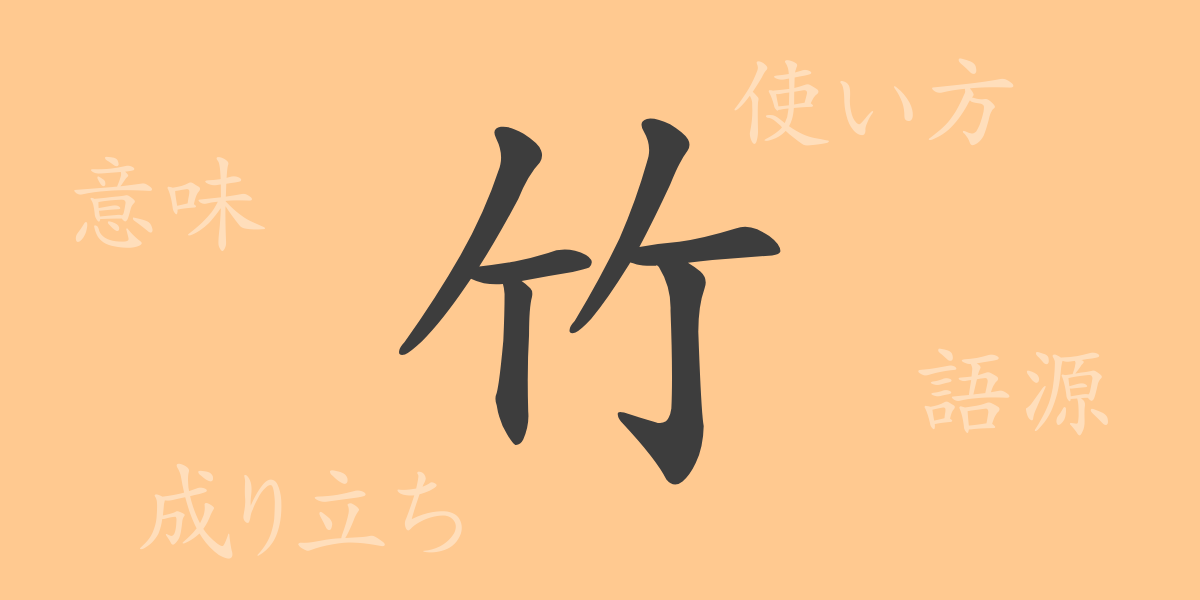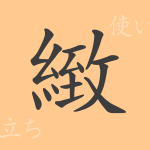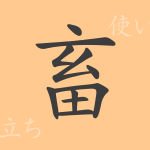Bamboo, with its unique appearance and robust vitality, has captivated many and is deeply ingrained in Japanese culture, appearing in various traditional crafts and literary works. This article delves into the kanji “竹(たけ),” exploring its origins, meanings, usages, readings, stroke count, and radicals, as well as phrases and proverbs associated with bamboo, highlighting its significance in our daily lives.
Origins of “竹(たけ)”
The kanji “竹(たけ)” is a pictograph representing the shape of bamboo. The top part symbolizes the leaves “⺮,” and the bottom shows the roots “丿.” This structure reflects the upright stance and branching nature of bamboo. Originating in regions of ancient China where bamboo was prevalent, the character was later introduced to Japan and has become a staple in the language.
Meaning and Usage of “竹(たけ)”
Bamboo symbolizes “honesty” and “integrity” due to its upright growth. Its resilience and flexibility also make it a symbol of “strength” and “flexibility.” In Japan, bamboo is widely used in crafts, construction, and even as a food source, playing a vital role in culture and everyday life.
Readings, Stroke Count, and Radical of “竹(たけ)”
The kanji “竹(たけ)” is an essential character in Japanese, taught in elementary school.
- Readings: On’yomi “チク” (chiku), Kun’yomi “たけ” (take).
- Stroke count: 6 strokes.
- Radical: 竹部 (たけかんむり).
Phrases and Proverbs Involving “竹(たけ)”
Numerous idioms and proverbs involve bamboo, reflecting its cultural significance.
- 竹を割ったよう (たけをわったよう) – Describes someone who is very straightforward and honest.
- 竹馬の友 (ちくばのとも) – Refers to a childhood friend, lit. ‘bamboo horse friend’ referring to playing together on stilts made from bamboo.
- 竹の子大将 (たけのこたいしょう) – A child who acts bossy or pretentious, likened to a bamboo shoot which grows fast and stands out.
- 竹を並べて矢を作る (たけをならべてやをつくる) – Describes doing things efficiently, analogous to making arrows which must be straight and true like bamboo.
Summary on “竹(たけ)”
The kanji “竹(たけ)” is not only visually appealing but also profoundly integral in its cultural and practical applications, frequently appearing in idioms and proverbs that reflect Japanese sensibilities and values. More than just a plant, bamboo is a significant symbol in our lives, embodying lessons and spirits that are passed down through generations. It remains our task to cherish and continue learning from this symbol.

























